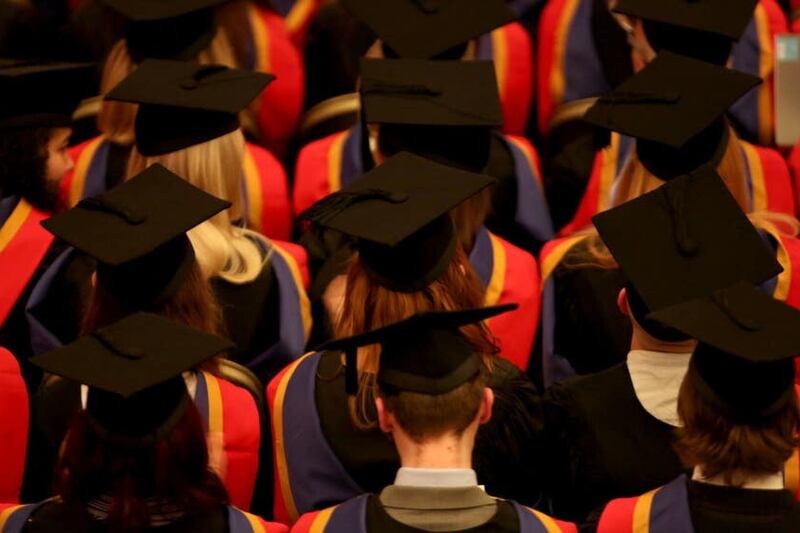THE proportion of undergraduate degrees awarded as firsts has hit a decade high.
According to data from the Higher Education Statistics Agency (HESA), more than a quarter (28 per cent) of classified degrees were awarded first class honours.
In 2009/10 it was 14.4 per cent across Britain and Northern Ireland.
HESA said the number of students achieving a first had increased across the UK two percentage points every year since 2013/14.
The agency's latest data release includes information on subjects studied, where people take their degrees and the qualifications achieved.
Across the UK, the total number of qualifications achieved in 2017/18 was 777,005. This was an increase of 3 per cent when compared to 2016/17, largely attributed to the increase at masters taught level.
At Northern Ireland institutions alone, there were 15,500 qualifications, almost the same number as four years ago. About seven in 10 of these were undergraduate degrees. The proportion achieving postgraduate taught qualifications has remained broadly the same for the last five years.
More than three quarters of all qualifications earned in the north were obtained by students domiciled in Northern Ireland.
HESA said a larger proportion of female students gained a first or upper second class honours than male students - 28 per cent compared top 27. A larger proportion of full-time students gained a first or upper second class honours than part-time.
In Northern Ireland, 28 per cent of degrees in 2017/18 were `firsts', up from 23 per cent last year and 19 per cent in 2013/14. Last year, half of all qualifications were awarded a 2:1 while 19 per cent were 2:2 and 3 per cent a third.
Of the 15,500 qualifications in the north, most were in subjects allied to medicine (2,720) followed by business and administrative studies (2,460), social studies (1,595) and teacher education (1,370).
There was a decline in those taking languages while there was an overall increase in the number of qualifications gained in biological sciences.
A larger proportion of male students qualified in science subject areas than female, particularly at undergraduate level.
The figures from HESA also show that since the Brexit referendum in June 2016, there was a slight drop in the number of first year students from other EU countries - down 1 per cent across the UK to 62,270 in 2017/18 from 63,035 in 2016/17.
But the number of first year students for 2017/18 was still higher than in 2013/14.
The number of first year students from non-EU countries rose by 8 per cent to 185,415, up from 172,275 in 2016/17.





